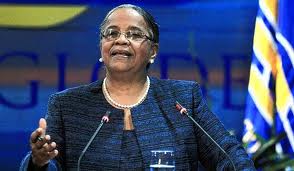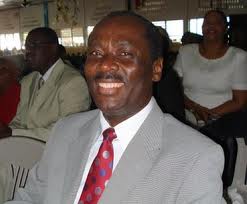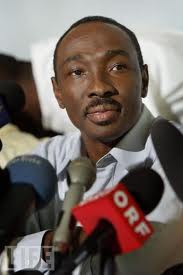
Former presidential candidate Mirlande Manigat
After ensuring each Minister in his novice administration took the oath of office, President Michel Martelly launched a new initiative aimed at restructuring the country’s political infrastructure, as a roaring opposition still in its infancy mobilized to reclaim power.
Using the century-old daily newspaper Le Nouvelliste, the emerging opposition enumerated three areas of concern that preoccupied its leadership, giving rise to skepticism of the new team: inexperience of the executive duo, lack of cohesion in the chosen Cabinet and Martelly’s conflicting personality.
“It’s a mixture of irresponsibility, vulgarity and lack of knowledge of the issues,” said former presidential candidate Mirlande Manigat to reporters. She wondered, “Is the new prime minister distinguishable from Michel Martelly? Will he have his own brand?” The former first lady lost to President Martelly in the second round of the Haitian presidential Elections. “Under the constitution,” she continued, “He [Conille] is the head of government, but everyone knows the circumstances under which he gained access to that position… It’s a little problematic.”
For his part, Himmler Rebu, leader of Great Rally for the Evolution of Haiti (GREH), took a more moderate approach, vowing to allow the new government a grace period to roll out its agenda while remaining cautious. Rebu felt the population had an obligation to give Conille and his crew time to implement their agenda before making demands.
Political reform, a part of the president’s national reconciliation initiative, aimed at reducing the plethora of political parties making up the Haitian political landscape to only three that would be based on ideological tendencies. The current, unregulated system allows qualified individuals to create political parties regardless of views or ideology. Government figures revealed more than one hundred political parties legally registered with the Justice Department.

Osner Fevry (CONACED)
The idea was hardly new, reported radio Metropole in an online article. Martelly’s predecessor, former President Rene Preval, attempted similar political reforms that did not materialize before he left office. While most leaders of the 30 parties that met with the President welcomed what they called a historical initiative, others advocated for more practical plans based on a legal framework. Osner Fevry, who heads the National Coalition of Non-Aligned Parties of the Democratic Centre (French acronym CONACED), acknowledged the need for structure, but advocated for continuity and a committee to oversee the process. “Fevry believes that the chief executive can use the work already done in this area by Conference and the Convention of Political Parties (CPP),” read the article.
The president’s initiative did not do enough to deflect the opposition’s skepticism or deter its objectives. “The alternative party is in the opposition,” said Sauveur Pierre Etienne, national coordinator of the Organization of the People in Struggle (French acronym OPL). He estimated the new government was a coalition of INITE, the party of ex-leader Preval, Fanmi Lavalas of former President Jean Bertrand Aristide and remnants of the Duvalierists regime. “We don’t know how long this honeymoon will last,” added Etienne who asked, “Will the new government meet its wacky engagements and fulfill President Martelly’s campaign promises?”

Evans Paul
Meanwhile, Rassamble party leader Jean Andre Victor said his party expected nothing from the new government, but wanted to wait and see it at work before making his party’s stance public. In his views, national dialogue and reconciliation preceded everything else. His colleague Evans Paul on the other hand, felt the country’s success came before political ambitions. “Whenever a government fails, the country pays the consequences,” Le Nouvelliste reported him saying. Paul wished success to the Martelly/Conille team, emphasizing that no government would deliberately choose to fail. Nevertheless, he felt the lack of cohesion, a clear vision, and the strong Duvalierists presence could plague Conille’s administration; hence, his party’s neutral positioning between the government and the opposition. “We only hope that the new government does not create a presidency for life or the old regime,” he insisted.
As the political community scrambled around trying to reinvent itself, its skepticism about President Martelly’s vision and the capacity of his team became increasingly evident. Political analysts inferred the rise of a formal opposition signaled that considerable resistance awaited Prime Minister Conille, echoing the former first lady. “We are creating an opposition model that exists in the Anglo-Saxon Caribbean, although we cannot afford to dream,” noted Manigat. “It will be peaceful and democratic. We are preparing to take the reins of power.”